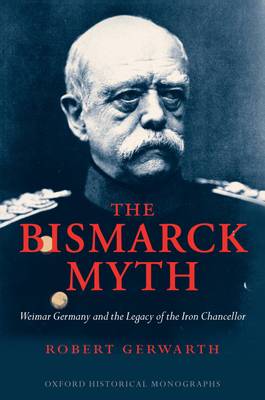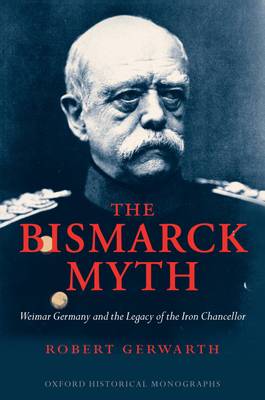
- Afhalen na 1 uur in een winkel met voorraad
- Gratis thuislevering in België vanaf € 30
- Ruim aanbod met 7 miljoen producten
- Afhalen na 1 uur in een winkel met voorraad
- Gratis thuislevering in België vanaf € 30
- Ruim aanbod met 7 miljoen producten
Zoeken
€ 306,45
+ 612 punten
Uitvoering
Omschrijving
Few statesmen in history have inspired the imagination of generations of Germans more than the founder of the Kaiserreich, Otto von Bismarck. The archetype of charismatic leadership, the Iron Chancellor maintained his pre-eminent position in the pantheon of Germany's political iconography for much of the twentieth century. insightful analysis of the Bismarck myth's profound impact on Germany's political culture. In particular, it investigates the ways in which that myth was used to undermine parliamentary democracy in Germany after the Great War, paving the way for its replacement by authoritarian rule under an allegedly 'Bismarckian' charismatic leader, Adolf Hitler. Weimar Republic, the Bismarck myth was never contested. The nationalists' ideologically charged interpretation of Bismarck as the father of the German nation-state and model for future political decision-making clashed with rivalling - and thoroughly critical - democratic and communist perceptions of the Iron Chancellor. The quarrel over Bismarck's legacy demonstrates how the clash of ideologies, particularly between 1918 universal interpretation of the German past. sheds new light on the Weimar Republic's struggle for survival and the reasons for its failure.
Specificaties
Betrokkenen
- Auteur(s):
- Uitgeverij:
Inhoud
- Aantal bladzijden:
- 228
- Taal:
- Engels
- Reeks:
Eigenschappen
- Productcode (EAN):
- 9780199281848
- Verschijningsdatum:
- 15/09/2005
- Uitvoering:
- Hardcover
- Formaat:
- Genaaid
- Afmetingen:
- 156 mm x 234 mm
- Gewicht:
- 503 g

Alleen bij Standaard Boekhandel
+ 612 punten op je klantenkaart van Standaard Boekhandel
Beoordelingen
We publiceren alleen reviews die voldoen aan de voorwaarden voor reviews. Bekijk onze voorwaarden voor reviews.











